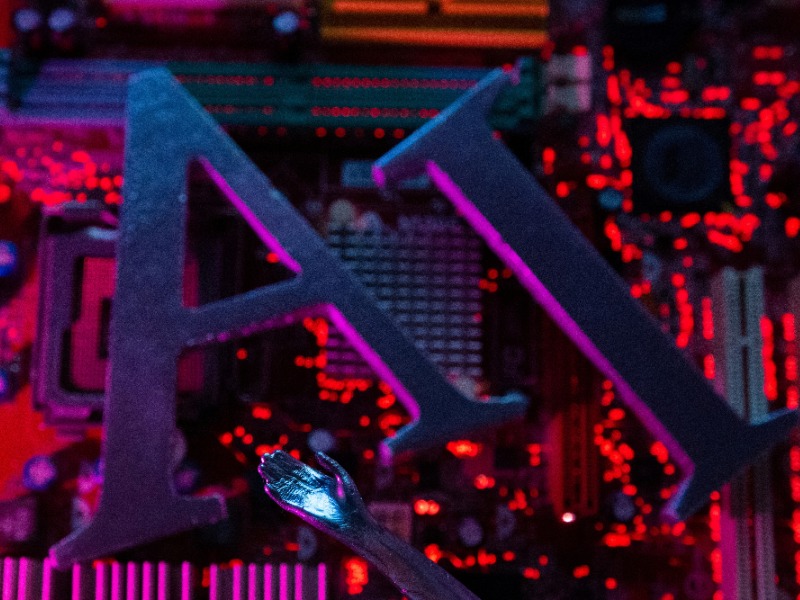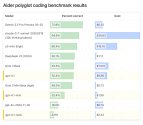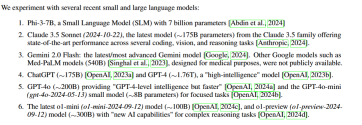Another flip-flop in trade policies? The US has been like a panicking chicken running around in its cage.Seven Republican US senators have sent a letter to US Commerce secretary Howard Lutnick, urging him to scrap a Biden administration rule restricting global access to AI chips before it kicks in next month.
The letter, signed by senators Pete Ricketts, Tommy Tuberville and Thom Tillis, argues that the AI diffusion rule will damage US leadership in artificial intelligence and calls for “immediate action” to halt it before it takes effect on May 15. It was sent on Friday and made public on Monday.
“Every day this rule remains in place, American companies face mounting uncertainty, stalled investments, and the risk of losing critical global partnerships that cannot be easily regained,” said the letter, which was also signed by senators Markwayne Mullin, Ted Budd, Roger Wicker and Eric Schmitt.
“We urge you to withdraw this rule and propose an alternative that is effective in preventing Communist China from capturing the world market in leading technology without compromising American advantages.”
Image: Reuters/Dado Ruvic
The Commerce Department did not immediately respond to a request for comment from Reuters. But the letter is a sign of lingering divisions within the Republican Party between those hoping to relax global restrictions on US AI chip shipments and hardliners who prioritise the danger that China might access the prized technology.
The letter says the structure of the rule, which splits countries into three tiers, puts only 18 nations in a group with the easiest access to American technology, and adds that they must comply with burdensome regulations. It also points out that partners and allies like Israel are excluded from the top tier.
Australia is , as is Belgium, Canada, Denmark, Finland, France, Germany, Ireland, Italy, Japan, the Netherlands, New Zealand, Norway, South Korea, Spain, Sweden, Taiwan and the United Kingdom.
The letter notes that the vast majority of countries fall into the second tier, which it says “face arbitrary purchase limits and a cumbersome licensing process”. Tier 3 countries, including China, are already “rightly restricted”, it says.
It would be difficult for US companies to comply with the constraints, the senators wrote, and even harder for the US government to enforce.
The restrictions also would incentivize buyers, especially in Tier 2 countries, to turn to China’s “unregulated cheap substitutes”, the letter says.
Reuters
You are using an out of date browser. It may not display this or other websites correctly.
You should upgrade or use an alternative browser.
You should upgrade or use an alternative browser.
Artificial Intelligence thread
- Thread starter 9dashline
- Start date
It's a lose-lose situation. If they don't do the restrictions, then China will obtain the chips via intermediaries. If they do the restrictions, then Chinese AI companies will obtain a huge advantage in market adoption in restricted countries.
I think the outcome China is looking for here is that they do restrict the chips, because long-term market adoption for Chinese AI and Chinese AI chips is more important than short-term supply of AI chips, especially as AGI is not likely to emerge within 1-2 years. China has enough chips for training, and Chinese inference chips are getting better every day.
I think the outcome China is looking for here is that they do restrict the chips, because long-term market adoption for Chinese AI and Chinese AI chips is more important than short-term supply of AI chips, especially as AGI is not likely to emerge within 1-2 years. China has enough chips for training, and Chinese inference chips are getting better every day.
The first independent benchmarks of GPT 4.1 are out and they are... mid.

Seems Google has the performance crown and Deepseek still has insane value for money. V3 outperforms GPT 4.1 while being nine times cheaper. Reinforces the narrative that OpenAI is losing their leadership which they had for years now. They are neither the best-performing nor the cheapest. So what's their moat? Perhaps normies are just using them out of habit.

Seems Google has the performance crown and Deepseek still has insane value for money. V3 outperforms GPT 4.1 while being nine times cheaper. Reinforces the narrative that OpenAI is losing their leadership which they had for years now. They are neither the best-performing nor the cheapest. So what's their moat? Perhaps normies are just using them out of habit.
GPT-4.5 has been removed from OpenAI's website. I said from the beginning it would be a commercial failure. Now we know they must have been losing an insane amount of money serving the model despite charging 136x the price of DeepSeek V3. They also won't be able the recuperate the model training cost now, which is likely 10s of millions of dollars.


GPT-4.5 has been removed from OpenAI's website. I said from the beginning it would be a commercial failure. Now we know they must have been losing an insane amount of money serving the model despite charging 136x the price of DeepSeek V3. They also won't be able the recuperate the model training cost now, which is likely 10s of millions of dollars.
View attachment 150076
The fact that GPT loses money serving their models really puzzles me.
According to this , their models are not big

For instance GPT-4o is 200B, but LLama 3 is a dense 405B model and can be served at per million tokens.
Also o1-mini is just 100B, it should be quite cheap to run, and at huge profit too, considering how much they charge for it.
So why OpenAI apparently runs at loss?
They have a contract with Microsoft to use their clusters. Maybe the contract, signed few years ago when the performance/price ratio of LLM models were not so clear as is today, is very penalizing for OpenAI.
This could be the reason why OpenAI CEO is desperately trying to find and alternative to Micorsoft to run their models.
It's not though. It's lobbying.Another flip-flop in trade policies? The US has been like a panicking chicken running around in its cage.
It's not though. It's lobbying.
The chink in Trump’s armor is how the entire administration is beholden to shareholder values. Squeeze the bottom line a little and he’ll fold like a soggy house of cards.
They aren't bothered by shareholders. They have no option but pay attention to bonds.The chink in Trump’s armor is how the entire administration is beholden to shareholder values. Squeeze the bottom line a little and he’ll fold like a soggy house of cards.
Open AI has released their next set of models, o4-mini and o3. o3-pro is supposedly in the works for professional users, as well (will be expensive).
Performance based on bench marks so far is around Gemini 2.5 pro level, and Open AI released after Google so technically they've fallen behind unless o3-pro is significantly better. o4-mini is just as cheap as Gemini 2.5 pro, but performs slightly worse.
But we really need some Chinese releases now to balance things out, the US is pulling ahead as a group again and Google seems to be really heating up the competition (as I expected); fortunately that should be happening in the next few weeks with Qwen 3 and Deep Seek R2.
In other news, the US Select Committee is moving against Deep Seek (still scared it seems):
Recent moves to block H20 and Open AI requiring government ids for access to its developer APIs seem directly tied to the effort to block / slow down DeepSeek and Chinese AI in general. There is now also talk of sanctioning DeepSeek and blocking US users' access to DeepSeek services altogether.
Performance based on bench marks so far is around Gemini 2.5 pro level, and Open AI released after Google so technically they've fallen behind unless o3-pro is significantly better. o4-mini is just as cheap as Gemini 2.5 pro, but performs slightly worse.
But we really need some Chinese releases now to balance things out, the US is pulling ahead as a group again and Google seems to be really heating up the competition (as I expected); fortunately that should be happening in the next few weeks with Qwen 3 and Deep Seek R2.
In other news, the US Select Committee is moving against Deep Seek (still scared it seems):
Recent moves to block H20 and Open AI requiring government ids for access to its developer APIs seem directly tied to the effort to block / slow down DeepSeek and Chinese AI in general. There is now also talk of sanctioning DeepSeek and blocking US users' access to DeepSeek services altogether.
Last edited:
We’re probably witnessing a repeat of last year’s dynamic. The U.S. surges ahead with a new generation of models, only for China to close the gap faster than expected with its own new generation. This only became evident to the West with DeepSeek R1, when China finally caught up, but the balance in AI research has been shifting in China’s favor for years, obvious to anyone tracking the trends.
Now China is in a much better position, with V3 leading in non-reasoning models, R1 still the leader in creative writing, Kling 2.0 as the best video model and with sound generation, Kolors 2.0 and Seedream 3.0 on par with the U.S. in image generation, Minimax highly competitive in audio generation and Mureka in music generation. All of those AIs are available globally. Just earlier last year, China had no AI services available at all other than DeepSeek. China is also decisively surpassing the U.S. in robotics and self-driving, the balance is shifting permanently. Unless AGI resets the race, China’s trajectory points to undisputed AI leadership across all domains within years. There might be moments when the U.S. pulls ahead again, but those will grow shorter and shorter, until AI becomes like EVs.
Now China is in a much better position, with V3 leading in non-reasoning models, R1 still the leader in creative writing, Kling 2.0 as the best video model and with sound generation, Kolors 2.0 and Seedream 3.0 on par with the U.S. in image generation, Minimax highly competitive in audio generation and Mureka in music generation. All of those AIs are available globally. Just earlier last year, China had no AI services available at all other than DeepSeek. China is also decisively surpassing the U.S. in robotics and self-driving, the balance is shifting permanently. Unless AGI resets the race, China’s trajectory points to undisputed AI leadership across all domains within years. There might be moments when the U.S. pulls ahead again, but those will grow shorter and shorter, until AI becomes like EVs.
